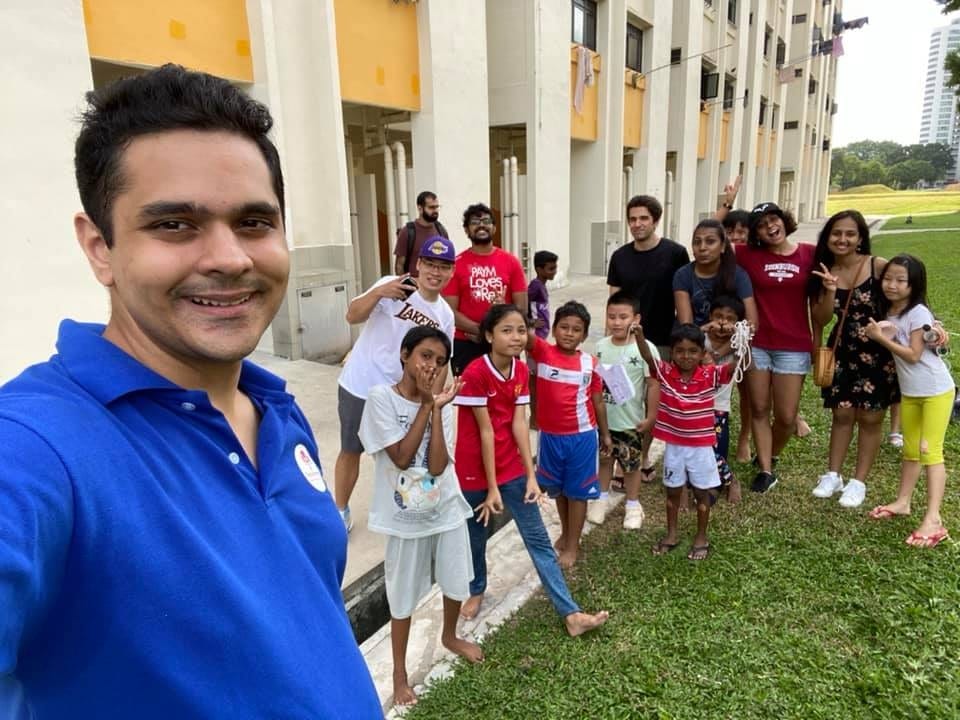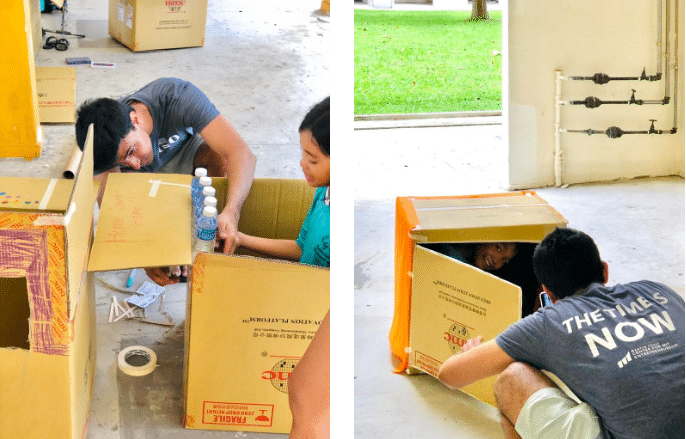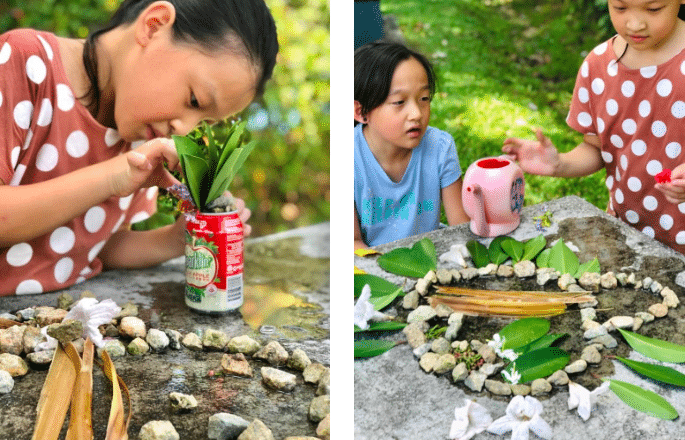Friends of Saturday Kids: Abhishek on breaking bread, building community, and enabling strengths
February 18, 2020

“It really all starts from the conversation you have with a child.”
Sometimes doing good and making an impact is really not as straightforward or as simple as it seems. While we’ve been running Code in the Community and working with corporates to run creative coding classes for kids from under-privileged backgrounds for years, we’re continually learning about how to make digital literacy relevant and impactful.
Thankfully, we get to befriend and learn from change-makers with the ground expertise and who dedicate themselves to working with kids in high need communities on the ground, day in day out. Like Abhishek Bajaj, a community worker who runs 6th Sense, a ground-up movement to respond to community needs in Kebun Baru, a rental flat neighbourhood in Singapore.
Here, Abhishek – who spends his time enabling the strengths of families in this neighbourhood and being abang (brother) Abhi to the kids in this community – shares what he’s learned from his experience, and suggests where those of us who want to do something to help can start.
As a Community Worker, what do you do?
“I’d call myself an enabler who plays the role of facilitating relationships between different groups of people.”
You come from a technical background in data science. How did you end up doing the community work that you do now?
“My journey began when I was growing up in India the first 7 years of my life – I lived in a community of families where we knew each other. At 5.30pm, without fail, we’d all go out and play, and we’d all be well fed and cared for wherever we were. I missed that when we moved to Singapore.
While studying, I worked on a carbon credit project in Sumatra and started volunteering with a non-profit organisation called Ground-Up Initiative – these experiences helped me connect with something I hadn’t felt in a very long time. Later, I did research projects investigating the effects of play on kids and the lived experience of people living in rental blocks.

“During this session we asked the kids to use their imagination – some turned these cardboard boxes into homes, some made an ice cream stall.”
I wanted to understand the lived realities of communities and to learn about what it’s really like on the ground, which led me to join Beyond Social Services as a community worker. That set me on the journey I’m on now, where I work with a community of families living in rental blocks at Kebun Baru through an organisation called 6th Sense.”
What does community work mean to you?
“Community work is definitely a two-way relationship. You’re not just giving to someone. I’m learning from the community as well about how to live and how to have an impact on someone else.
When I meet the kids I work with – when they play hide and seek and other void deck games – time goes by in a blur. Their giggles, happiness, shock and all are very raw, pure emotions that help me reconnect with my childhood identity – it means so much to me. I feel very safe when I’m with them.
Going deeper into these relationships helped me find my kids’ different gifts and skills. They are competitive and are very present in their daily interaction, with the desire to have as much fun as possible now. They are not as concerned about the future as they are focussed on what the present holds.
As community workers, we’re not there to scare them about the future – that’s not within the kids’ thinking structure. We’re trying to equip them to survive in a larger economy and environment that’s different from what they’re growing up in.”
What role does education play for the kids you work with in rental blocks?
“In school, their learning focuses on academic skills which are very theoretical, and not really aligned with their lived realities. I believe they would blossom in a system that’s more child-led – where they can set their own objectives, and express their emotions and needs clearly.

“We want to put across to the kids that play doesn’t need to be expensive but can be made possible with everyday materials.”
My wish for my kids at the age of 7-12, is to have a huge range of free play activities. To be able to practise their imagination, and never feel that there’s nothing they can do. I wish for them a sense of possibility to be and do whatever they set their minds to. Not just in the future, but in the present.
What would benefit them is a child-safe area in rental blocks; currently, there’s no psychological safety there – there’s killer litter, people doing drugs. It’s nearly impossible to learn and play in that environment.”
What advice do you have for well-intentioned students or corporates who are eager to volunteer to help disadvantaged kids and families?
“There are a lot of well-intentioned people who want to help. What I would advise them to do is: to break bread with the families. Sit on the floor and eat with them. Suspend your own value systems; try see things from the families’ point of view and match their cultural nuances.
Break bread with the families. Sit on the floor and eat with them. Suspend your own value systems. Try see things from the family’s point of view.
People generally want to help and see Corporate Social Responsibility as a pathway to reaching communities perceived as vulnerable through social good.
 Abhishek, volunteers, and the kids from 6th Sense at Kebun Baru.
Abhishek, volunteers, and the kids from 6th Sense at Kebun Baru.
I think there are some important questions to ask before planning a project: Who defines what is a good? Who owns it at the end of the day? What, really, is your agenda? Many corporates do CSR from an accountability perspective – that’s not wrong, but it’s not always the most impactful way to approach social impact work.
Leaders need to create the right container for these conversations.
Start with where communities are, instead of where you are. Explore from the lens of a child, for example, and then try and understand where your programme or activity fits in.
It really all starts from the conversation you have with a child.
Underprivileged kids should not be seen differently from privileged kids – all kids have so much potential. We need to respect kids, honour their opinions and not take away their dignity. Even if their opinions and values don’t align with your objectives, it shouldn’t stop you from creating an environment where they can succeed – that’s our duty as adults.”
. . .
Want to do something to help? Whether you’re an individual, corporate or student volunteer looking to do good – we hope that this article offers a thoughtful starting point to approach making an impact on kids from disadvantaged backgrounds. If you’ve got further insights on the topic, we’d love to hear from you.
Learn more about 6th Sense and find out how you can support them on their Facebook page!
